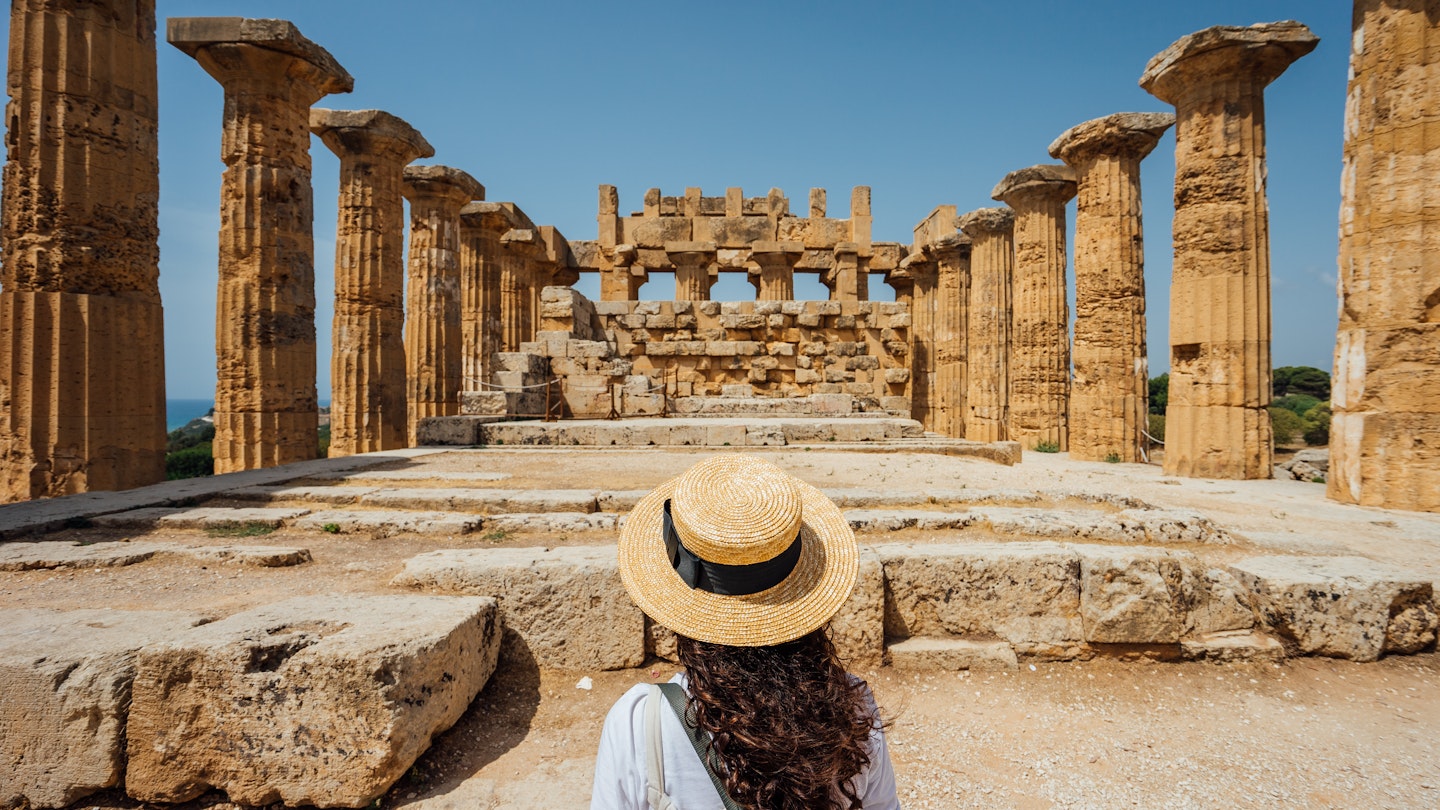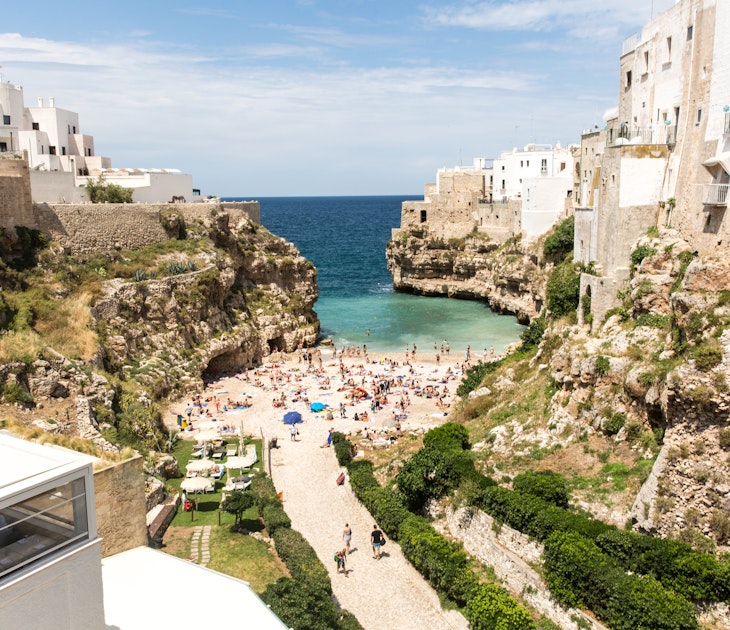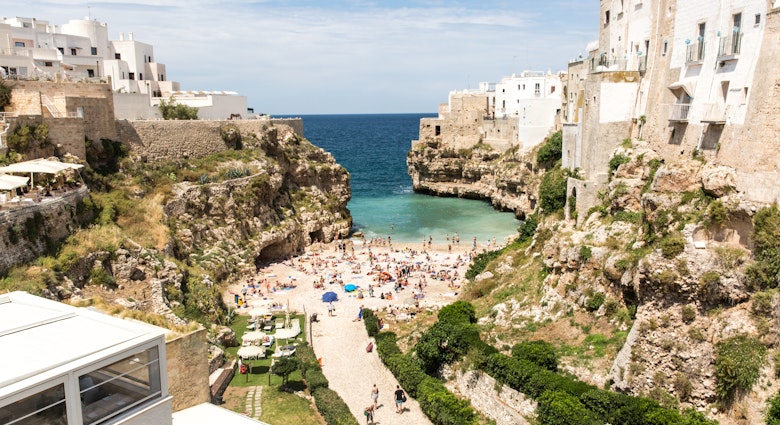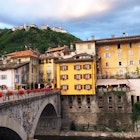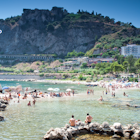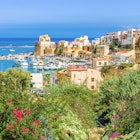Replete with some of the world’s finest ancient Greek and Roman ruins, medieval hill towns, sprawling cities layered with history and natural wonders – including puffing volcanoes and hidden beaches – Sicily offers an extraordinary menu of unmissable destinations to visit.
Here are the top places to experience this Italian island's dazzling diversity of landscapes and cultural treasures.
1. Explore historic Palermo on foot
Best for urban adventure
The best way to enjoy Sicily’s main city is by getting lost. Endlessly walkable, there is a slew of revamped pedestrian areas and squares (with plenty of cafes for refreshment) amidst the centuries of decay the city wears proudly. Palermo is a place to lose yourself in its contradictions.
Bold, creative and aristocratic, the city has defiantly set its own style for millennia – Romans and Byzantines have walked these streets before you. Palermo’s not impossibly huge; even the smallest street can lead to a broken-down medieval church filled with treasures, or to a thriving daily produce market. Head out and explore knowing you can’t really get that lost. Start with the neighborhoods of La Kalsa, Vucciria, Il Capo and Albergheria and see where whim, inspiration and intrigue take you.
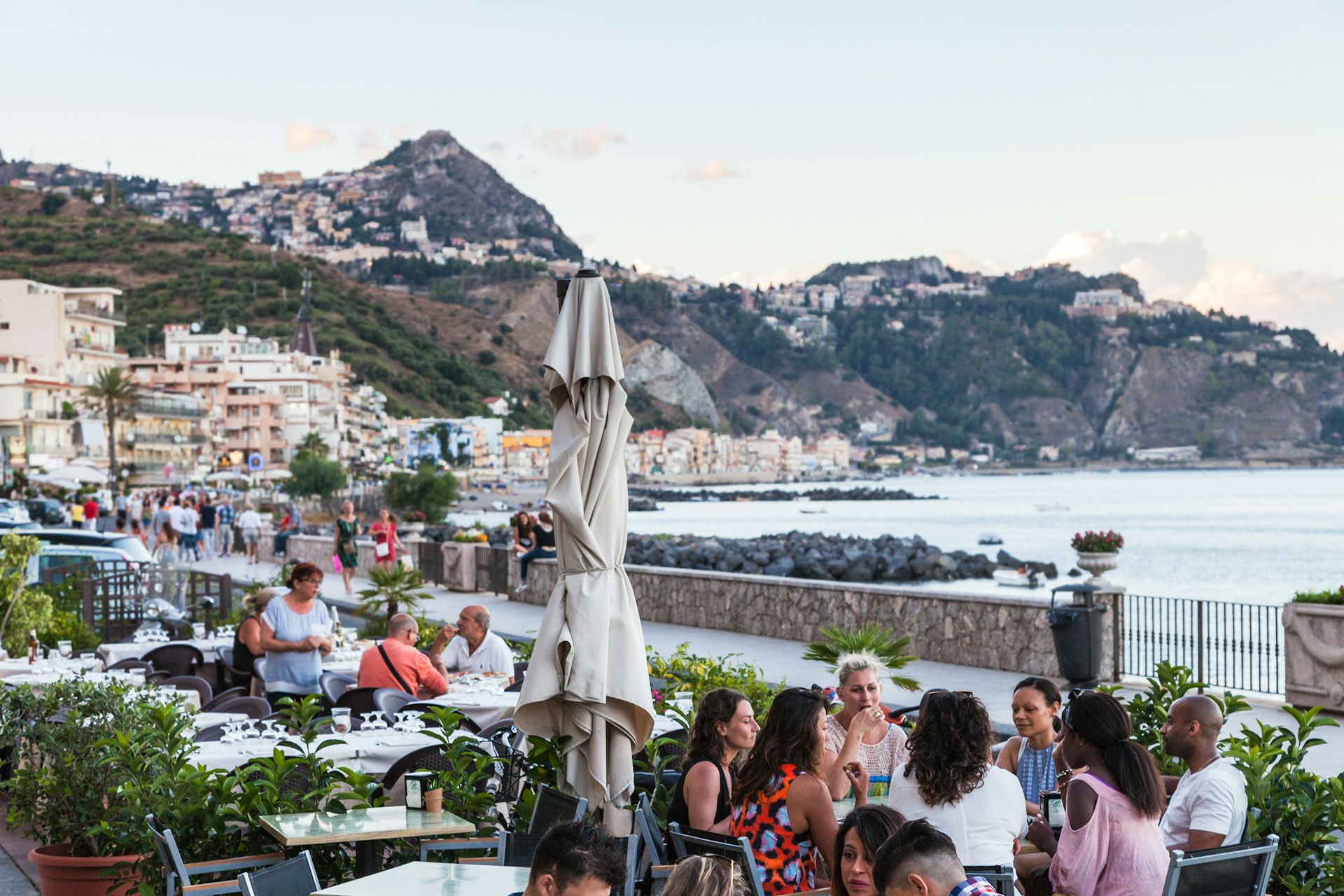
2. Live la dolce vita in Taormina
Best for luxe relaxation
Memorably perched on the side of a mountain, Taormina is one of Italy’s most buzzing summer destinations, a fabled resort town popular with holidaying high rollers and those wanting a taste of Sicilian dolce vita.
Its famed resorts fill from June to August with chic crowds who only emerge from behind the largest and darkest of sunglasses for music festivals in the spectacular Teatro Greco, or nights in the storied restaurants and clubs (or perhaps inside the exclusive boutiques by day).
Founded in the 4th century BCE, Taormina enjoyed great prosperity under the Greeks and Romans. Restored to prominence in the 18th century, the town’s fame was furthered by DH Lawrence, who lived here in the 1920s.
If your idea of true relaxation is slightly less frenzied than the summertime zenith, come in April, May, September or October when the weather is perfect and the crowds manageable.
3. Take a leap back in time at the Valley of the Temples
Best for ancient wonders
The extraordinary ruins of the Valley of the Temples in southern Sicily astound like no other ruins on the island. Strung out along the long rocky promontory where the ancient Greeks erected them in the 5th century BCE, the temples formed one of the largest cities in the western world.
This is the most magnificent site that celebrates the accomplishments of the ancient Greeks outside of Greece. The beautifully preserved Doric temples were a beacon to ancient sailors returning from exploits across the Mediterranean. Don’t miss the Museo Archeologico, one of the island’s finest museums.
After a day of historic wonders, delight in the nearby city of Agrigento’s medieval core. Stroll Via Atenea, an appealing strip lined with trattorias and bars with patios of outdoor tables. Narrow alleys wind upwards off the main street, past tightly packed mansions interspersed with historic churches.
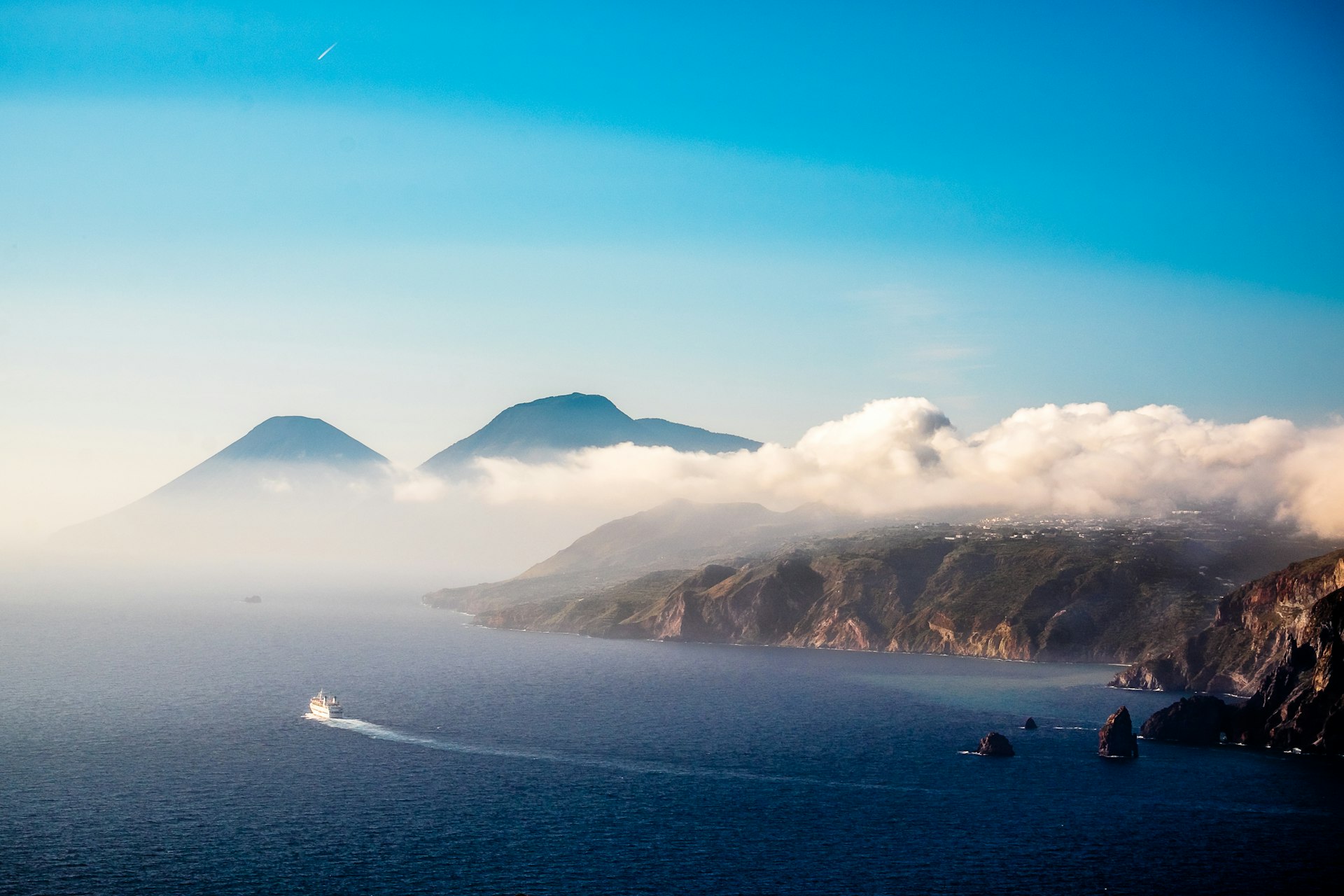
4. Get away from it all on the Aeolian Islands
Best for volcanic excitement
You sense the Aeolian Islands before you actually see them: two of these seven extraordinarily beautiful spots off the Sicilian coast are very active volcanoes, and their steamy, smoky belching sends plumes far into the air.
The islands of the Aeolian archipelago are packed with standout attractions – Salina’s verdant vineyards, Panarea’s whitewashed resorts, Lipari’s vibrant streetlife – yet the awe-inspiring volcanic drama of Stromboli and Vulcano could easily provide all the wonder you need.
These pieces of paradise offer plenty of opportunities for relaxation and outdoor fun, especially hiking, where you can embark on short jaunts or long treks across hissing volcanoes. Stunning blue waters lure swimmers, kayakers and divers, while oenophiles can delight in sips of honey-sweet Malvasia wine.
5. Syracuse boasts both ancient and modern delights
Best for Sicilian beauty
Syracuse (Siracusa) encapsulates Sicily’s timeless appeal. Enter the labyrinthine alleyways of the city’s ancient island of Ortygia (Ortigia) or the nearby vast layers of archeological history, and you’ll soon be slack-jawed. In quick order, you can go from standing in a vast field of Greek ruins gazing down over delicate papyrus plants to wandering through a marble-paved baroque piazza where ancient temple columns peek out from under a cathedral’s elaborate facade.
In its 8th-century-BCE heyday, Syracuse was the largest city in the ancient western world, bigger even than Athens and Corinth. Greeks founded a settlement here that – almost three millennia later – constitutes the Parco Archeologico della Neapolis, one of Italy’s greatest archaeological sites. Today, you can marvel at the past while losing yourself in its beautiful streetscapes and appealing dining, drinking and shopping options.

6. Gaze upon incredible views in Erice
Best for village charm
With each hairpin curve on the long climb to Erice in Sicily’s west, it seems impossible for the views to get any better. But they do. And the top sight is literally on top: the Norman Castello di Venere affords 360-degree perspectives far out to San Vito Lo Capo, the Egadi Islands and the salt pools and windmills of the Saline di Trapani.
From this lofty perch atop the sacred peak of Eryx, medieval Erice watches over the port of Trapani. It’s a mesmerizing, walled 12th-century relic whose peculiar history, mountain charm and sensational views are only enhanced by sudden weather changes that take you from blazing sunshine to thick fog in the space of minutes.
Lose yourself in the atmospheric maze of stone-paved streets while savoring dolci ericini (almond sweets). Although they're sold in a profusion of pastry shops and restaurants, go right to the original source: the renowned old-world Pasticceria di Maria Grammatico.
7. The natural wonders of Riserva Naturale dello Zingaro
Best for nature and beaches
Straddling the grand sweep of the Castellammare del Golfo, Sicily’s oldest nature reserve is magnificent. The rugged stretch of scalloped coastline boasts pristine coves threaded with hiking trails, and it's dotted with museums that celebrate local flora, fauna and more.
Riserva Naturale dello Zingaro is a hiker’s paradise and a haven for wildlife, including the rare Bonelli’s eagle, majestic buzzard, kestrel and some 40 other bird species. Wild carob and bright-yellow euphorbia dust the hillsides, along with 700 other species of Mediterranean flora – some unique to this stretch of coast – while hidden beaches provide tranquil swimming and snorkeling spots.
From the main coastal path, well-signposted gravel tracks cut through almond trees and orchid-dotted meadows to picturesque coves laced with pretty pebble beaches. Only accessible by boat or on foot, they are idyllically empty for much of the year.
8. See a collision of ancient cultures in Piazza Armerina
Best for Roman splendor
Medieval Piazza Armerina, a hilltop market town in central Sicily, is the perfect base for exploring the finest Roman floor mosaics in existence.
The UNESCO-listed Villa Romana del Casale is sumptuous even by decadent Roman standards and is thought to have been the country retreat of Marcus Aurelius Maximianus, Rome’s co-emperor during the reign of Diocletian (CE 286–305). The sprawling site features over 3500 sq m (37,673 sq ft) of astoundingly well-preserved floor mosaics, colorfully interwoven with intriguing ancient narratives.
Piazza Armerina village is a lovely one-hour walk from the mosaics, and this atmospheric place is really two towns in one: the original Piazza founded by the Saracens in the 10th century and the 15th-century expansion to the southeast, which was redefined by an urban grid established in the 17th century. The cathedral, with its towering dome, is a landmark for miles around.
